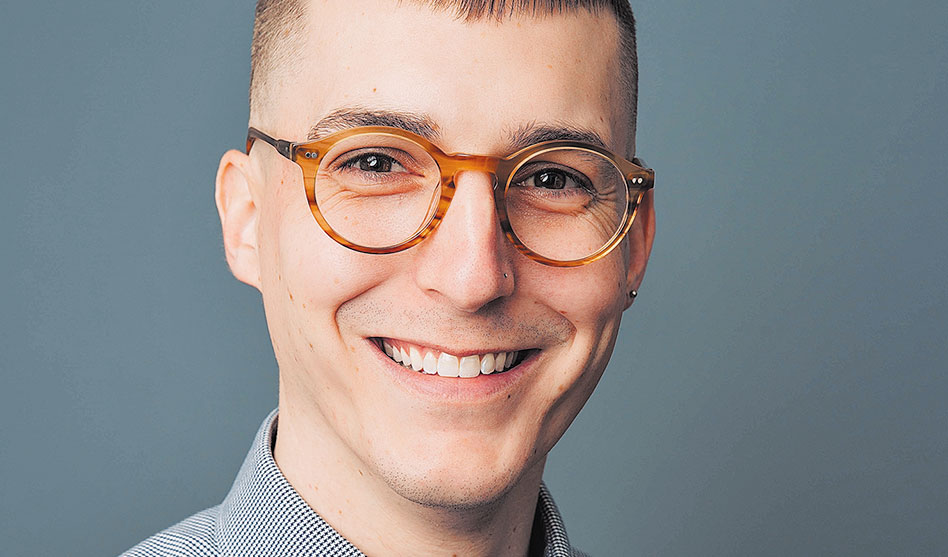Kollyn Conrad
How anti-gay education laws put LGBTQIA persons at risk and affect their mental health
Kollyn Conrad | Special Contributor
Since 2018, nearly 670 anti-LGBTQIA bills have been filed, and approximately 240 anti-LGBTQ laws have been filed in 2022, according to reports from NBC. Half of these anti-LGBTQIA laws target transgender people. Regardless of how many anti-LGBTQIA bills have been passed, the fact they were filed in the first place has caused a butterfly effect that’s putting LGBTQIA people in greater danger, physically and mentally.
By shutting the doors to the conversation about LGBTQIA issues in education, queer people become isolated and are forced to suppress themselves.
When someone has to suppress who they are, myriad of mental health issues are inflicted upon them through stress and anxiety.
The fear of being found out about who they are grows, and with it, the fear of being discriminated against. Schools are often safe havens for students who live in troubled homes, but when schools are no longer safe, their mental health plunges, making it even more important for education to be a safe space for LGBTQIA youth.
The Trevor Project’s national survey reported many statistics about the challenges LGBTQIA youth face. It says something about how bills are affecting our education system when “65 percent of LGBTQIA youth reported that they have experienced discrimination based on their sexual orientation, 45 percent of LGBTQIA youth seriously considered attempting suicide in the past year, and 71 percent of transgender and nonbinary youth reported that they have experienced discrimination based on their gender identity.”
However, the report also found lower rates of attempted suicide in LGBTQIA youth when they felt like their school affirmed their identity and community. These findings show us that affirming — or, at least, safe — educational institutions are key to harboring safe spaces for all communities.
To grow up in an environment where you must hide and suppress pieces of yourself that make you who you are, whether you choose it or not, is severely psychologically damaging. Students are often asked, “What do you want to be when you grow up?” To which they reply, “I don’t know; what can I be?”
The majority of the time, the answer they’re given is, “You can be anything you want to be,” only to find out they can’t be gay, lesbian, bisexual or transgender; this can be extremely damaging to students who eventually learn that they are queer in some way.
Schools need to be able to provide better access to mental health services for students. In the past year, 60 percent of LGBTQIA youth who wanted mental health care were unable to get it; 17 percent of LGBTQIA youth who attended a non-affirming school that did not or could not provide access to mental health care attempted suicide.
The signs are clear that education is a significant pillar in how LGBTQIA people are supported or neglected. Schools should be a safe space for everyone to learn and better themselves, not another place for people to look over their shoulders with worry for their own safety.
Educational institutions have a responsibility for the health of the next generation. With schools being pivotal regarding the growing and influencing of minds, young and old alike, they should equip themselves with the proper systems and resources to provide access to services that protect and nurture students’ health. Unfortunately, many teachers have been corralled into positions they didn’t sign up for, from being expected to be bulletproof in the event of a violent intruder to outing struggling students trying to figure out who they are and whether or not they like the same or opposite gender.
The LGBTQIA community needs its straight allies’ help now more than ever. One way to support us is through advocacy or even literally welcoming us into your home if we don’t have a safe space to live. Another is to support the teachers who are trying to help LGBTQIA youth. If you are an ally, the school your child attends should align with your values, so your child grows, learns and develops in a space that helps them to know what you value too.
Our straight allies are crucial to improving our culture’s treatment of the LGBTQIA community and anyone different from the norm. It is not enough to simply hold space for us; we need our allies to also be on the front lines with us and even help shield us at times. It is easy to be a friend to someone when their life is going well, but true friendship begins in pivotal moments.
Seven years ago, when gay marriage was legalized in the U.S., many people thought that the fight for equality for LGBTQIA people had finally begun to shift in our favor.
But with the surplus of anti-LGBTQIA legislation this year, along with the overturning of Roe v. Wade jeopardizing LGBTQIA freedoms, it’s clear that the fight to be who we are is still far from over, and our mental fortitude is being tested again.
Kollyn Conrad is executive director of Publicly Private, nonprofit organization founded by like-minded individuals in pursuit of a common mission to provide support and empowerment to the underserved LGBTQIA communities.

